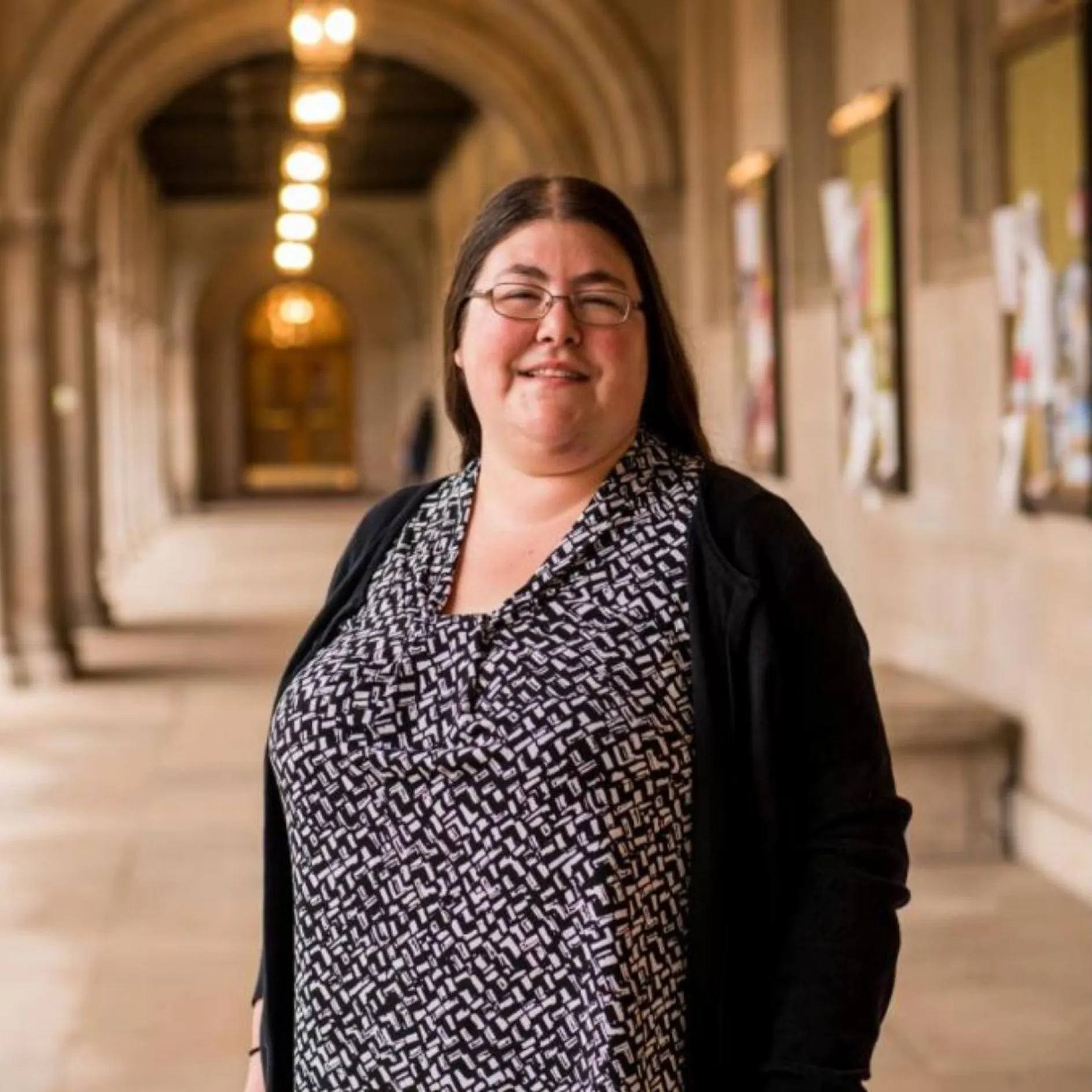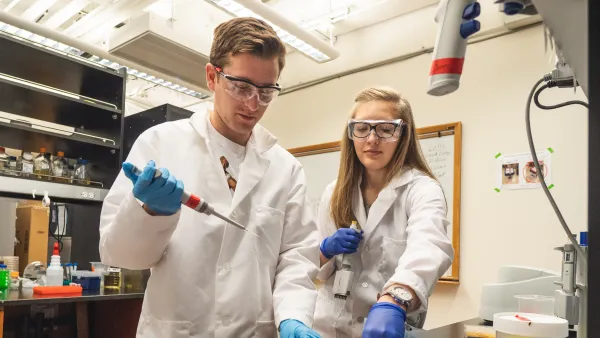Meredith Jackrel studies protein-misfolding disorders. She also uses protein engineering and directed evolution to tune protein disaggregases to reverse the protein misfolding implicated in these disorders.
Protein folding is an essential process, and so when protein misfolding occurs, severe problems can arise. Indeed, protein misfolding underpins many devastating neurodegenerative disorders including Alzheimer’s disease, Parkinson’s disease, Huntington’s disease, and amyotrophic lateral sclerosis. We are interested in understanding how protein misfolding occurs, how it can lead to disease, and how protein-remodeling factors can prevent or even reverse misfolding. We are particularly interested in protein disaggregases. Protein disaggregases are capable of solubilizing proteins from highly stable species such as amyloid and disordered aggregates. We are interested in better understanding how protein disaggregases solubilize such highly stable species. We are also interested in employing protein engineering techniques to tune the properties of disaggregases.
While amyloid is an extraordinarily stable protein conformer typically implicated in disease, yeast have harnessed the amyloid fold for beneficial purposes. The AAA+ protein Hsp104 regulates beneficial amyloid in yeast. We have shown that Hsp104 also has activity against several proteins implicated in human disease. Furthermore, we have used protein engineering to boost the activity of Hsp104, and these variants can suppress dopaminergic neurodegeneration in an animal model of Parkinson’s disease.
These first-generation variants are highly promising, but require further tuning to improve their characteristics. Thus we employ protein engineering and directed evolution to tune the activity of Hsp104 and other chaperones in order to develop protein-remodeling factors with desired properties. We predict that just as numerous proteins have evolved from generalists to specialists over many years of evolution, we can evolve Hsp104 from a generalist to a specialized molecular machine. We are also interested in testing the variants in various model systems including C. elegans, Drosophila, and motor neurons derived from reprogrammed patient fibroblasts. Finally, we also employ pure protein biochemistry and structural biology to better understand the structure and mechanism of protein-remodeling factors. Amyloid is incredibly stable, thus we seek to understand how these molecular machines disassemble amyloid.




